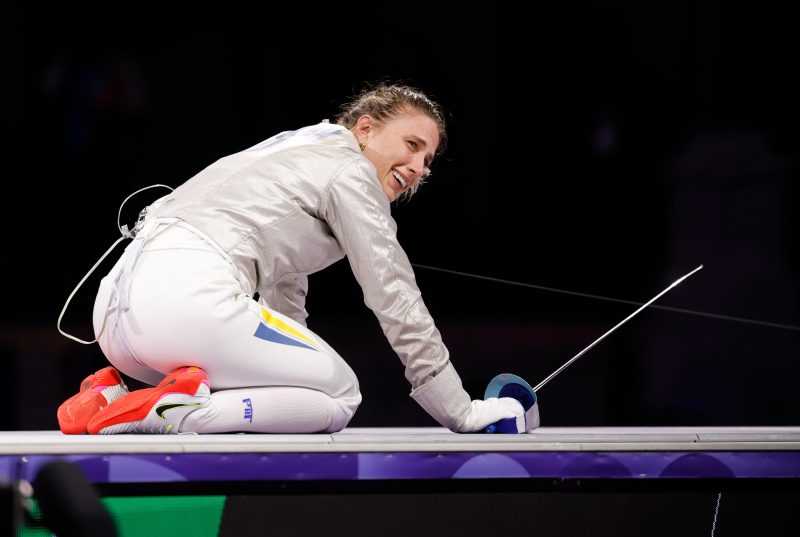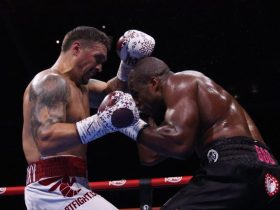PARIS – The Ukrainian fencer wept.
And she beamed.
And she basked in cheers of her countrymen Monday night during the women’s individual saber competition at the Paris Olympics.
Olga Kharlan won a bronze medal. But make no mistake, it was a golden moment.
She gave Ukraine its first Olympic medal of the Paris Games – and first since Russia invaded her country almost 2½ years ago – in a stirring 15-14 victory over Sebin Choi of South Korea.
2024 Olympic medals: Who is leading the medal count? Follow along as we track the medals for every sport.
“I’m really happy, and, you know, sad at the same time,’’ Kharlan told reporters later, “because my country goes through this moment, the war.’’
On the fencing strip inside the cavernous Grand Palais, Kharlan, 33, at one point looked destined for defeat.
She trailed 12-7. But as Kharlan began to lose ground and hope, the crowd – which included a large contingent of Ukrainians − came alive with cheers and then chants.
“Ol-ga! Ol-ga!’’
Then Kharlan came alive.
One point after another, she climbed back into the bout. The crowd grew louder. Kharlan fought harder.
She stormed all the way back and, when the referee signaled the final, clinching point was hers, Kharlan dropped to her knees.
She sobbed.
She kissed the strip.
And then she greeted a procession of countrymen and countrywomen who came down from the stands to embrace her.
It was not just Ukrainians cheering in a crowd that included Thomas Bach, president of the International Olympic Committee. In the semifinals, pitted against France’s Sara Balzer, the French rooted for their own in Balzer’s 15-7 victory over Kharlan.
But in the bronze medal bout, as Kharlan fell deeper into a hole against Choi, the crowd appeared determined to help lift the Ukrainian back into the contest.
“All the public cheered,’’ she said later, “and it helped.’’
Those who know nothing about fencing may have heard about Kharlan in February. She was disqualified at the world championships for refusing to shake the hand of a Russian opponent after winning the match.
But Monday was more about triumph than statements.
Kharlan is a five-time Olympian, and now she has a fifth medal. There is a a gold, a silver and two other bronze.
But the medal from these Olympics, Kharlan said, is different.
“All the sacrifices, all the tragic moments,’’ she said, referring to 2 ½ years of war. “It’s special because it’s for my country.’’







